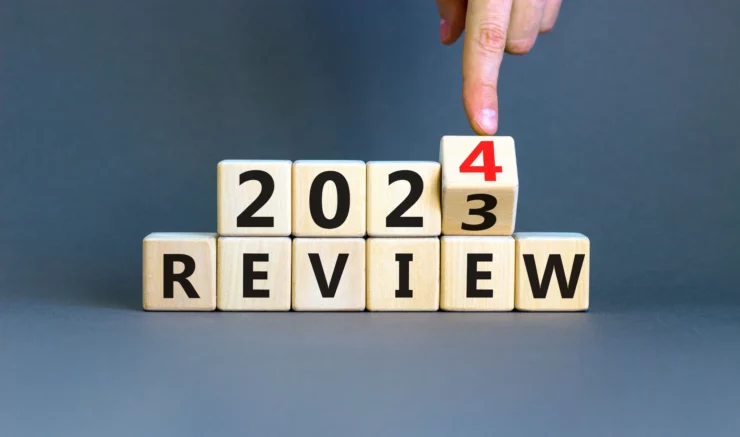I have lived through legal technology revolutions before. The conversion of legal research from print to online moved though law firms like slow rolling train. Lexis, the first commercial online legal research product launched in 1970. Many firms did not fully embrace online research and abandon print until the pandemic drove the profession to remote work, nearly 50 years later. Analytics in legal research provided dramatic new insights into the behavior of judges, courts, attorneys and clients. It took less than ten years following the launch of Lex Machina in 2013 for legal analytics to move from esoteric to essential. The promise of, if not the practice with Generative AI swept like a wildfire through the legal information market. When ChatGPT launched it took only five days to reach a million users and by January 2023 (2 months later) it had a 100 million users. Enter the “hype cycle.”

While OpenAi dominated the commercial market, Casetext, which had early access to GTP 4 dominated legal industry news headlines in 2023. Read the full post at Legal Tech Hub
Here Are some of the outstanding Casetext CoCounsel Moments of 2023:
- Casetext CoCounsel was previewed at Legal Week in January of 2023 with a suite of research and workflow tools that immediately signaled the birth of a new era in the practice of law. AI in law is not new, almost every major vendor had been either using AI to build or to power their products for years. The preview triggered a “red alert”, remaining “in the game” required the launch of generative AI product.
- CoCounsel was the first legal tech product to launch on live TV. On March 6th, cofounders Pablo Arredondo and Jake Heler announced the launch on MSNBC’s Morning Joe.
- $650 Million – the eyepopping sum that Thomson Reuters agreed to pay for Casetext in June 2023. The company opted to leapfrog ahead of their main competitors LexisNexis and Bloomberg Law by purchasing a fully development product rather than pursuing in- house development of a Generative AI solution.
“Generative AI Fever” Symptoms:
Non-Product Launch Pseudo Events. In his prescient 1962 book The Image, political historian Daniel Boorstein described a phenomenon called the pseudo-event. It is a “non-event” which is staged in order to be reported as news. I am not going to name names, but I, along with many other legal journalists, were invited to too many of these pseudo-launch events in 2023. The substance of the message was “we don’t have a generative AI product today but we plan to have a generative AI product soon, ‘please take notes.’”
AI Survey Saturation. 2023 was also “the year of too many surveys.” Perhaps this is an off shoot of the pseudo-events mentioned above. Companies that had no AI product created “AI adjacency” by releasing an “AI in the Legal Market” type survey. General conclusions were similar across the surveys – lawyers thought Generative AI was important, but they hadn’t a clue when their firms intended to get in the Generative AI game.
Trouble in AI Paradise
The “Schwartz” Effect. Steven Schwartz single-handedly setback the embrace of generative AI in law firms by at least a year. Schwartz famously used Chat GDP 3 to compose a brief which he submitted to a federal court only to have the judge’s clerk discover that it cited to non-existent cases which were hallucinated – by Chat GTP. This was more recently bookended by another attorney named David Schwartz being accused of submitting hallucinated cases in the Michael Cohen case in New York.
U.S. Judges Push back on AI. At the end of the day – hallucinated cases while a risk – also has a remedy. No matter what technology they are using, lawyers still need to read and “cite check” all the cases they have cited in a brief.
Several US courts have responded to the hallucination risk, by placing restrictions and disclosure requirements regarding not only the use of Generative AI but of AI in any form. The problem with this policy is that non-generative AI has been a pervasive presence in all of the US legal research systems for at least a decade. A lawyer will certainly know if they have used a commercial Generative AI product, but they are unlikely to know if any of the myriad of legal applications they may have used are infused “hidden AI.”
British courts embrace generative AI On December 12, 2023, the British Courts issued a document“Artificial Intelligence (AI) Guidance for Judicial Office Holders.” While the document contains cautions about Generative AI it also highlights potential useful tasks which will help Judges perform their work including; summarization of large volumes of text, writing presentations and composing emails and memoranda. The document warns against the use of public AI chatbots and legal research. Among the “red flags” which may signal an AI generated document is “the use of American spelling.”
The Generative AI Progress Beyond all the AI frenzy, the legal research market witnessed real progress toward reducing the risk of hallucinated cases. All of the major legal research systems are building Generative AI enabled research systems within their private and reliable repositories of primary law.
Bloomberg Law On September 26th, Bloomberg Law announced the launch of Innovation Studio, a testing environment that offers access to artificial intelligence tools that are currently under development for the Bloomberg Law platform.
vLex On October 17th, vLex (Fastcase) launched the first international AI enabled legal research product Vincent AI. Vincent AI accepts questions in natural language, conducts research in primary and secondary sources, presents a customizable source list, summaries of research and verifiable hyperlinks, and then creates research memos or arguments from the results in different formats. For the beta launch, Vincent AI will include 8 skills:
- Ask a Question – create a research memo to answer legal questions with direct citations and links to verified sources, including Fastcase’s Cert citator in the United States
- Build an Argument – Vincent will research and create winning arguments for or against propositions, based on precedent in specific jurisdictions
- Compare Law in Different Jurisdictions – forum shop or compare governing law across different states in the United States, or between different countries
- Spot Legal Issues – read and summarize instantly the issues in a case
- Headnote Summaries – create editorial headnotes for a case on the fly
- Document as a Search – drag and drop a document and automatically find related precedents without additional searches
- Related Authorities – during research, find related authorities from vLex, including primary and secondary materials.
- Vincent for Word – Access Vincent AI while drafting from inside Microsoft Word
Lexis (RLEX) launched Lexis + AI on October 25th. Lexis+ AI features conversational search, intelligent legal drafting, insightful summarization, and document upload capabilities, all supported by state-of-the-art encryption and privacy technology to keep sensitive data secure:
- Conversational search simplifies complex and time-consuming legal research by enabling users to conversationally interact with Lexis+ AI, explore new insights, and ask for adjusted and refined output.
- Document drafting instantly produces legal arguments, contract clauses, and client communications from a simple user prompt.
- Summarization functionality delivers case summaries in seconds with more content and capabilities coming soon.
- Document upload capabilities enable users to rapidly analyze, summarize, and extract key insights from legal document
Westlaw In November Thomson Reuters announced the launch of new suite of AI enabled tools:
• AI-Assisted Research on Westlaw Precision – Better, faster answers to complex research questions drawn from the industry’s most comprehensive collection of editorially enhanced content.
• A new GenAI assistant connects all Thomson Reuters generative AI products, building on innovation from Casetext
• Thomson Reuters Generative AI Platform – A common development platform to design, build, and deploy GenAI skills with unparalleled speed
• New GenAI capabilities for Practical Law – Customers to benefit from AI chat-type interface
• CoCounsel Core – Announcing the commercial offering of CoCounsel skills include AI enabled research, document review, creating deposition outlines, summarizing complex documents, and reviewing contract clauses for risk.
Major Mergers Reshape the Research Market. Over the past decade we have been fortunate enough to have had a robust market for legal research startups. Ravel law, Ross, Loislaw, Versuslaw peaked for a time and disappeared. Two of the few remaining U.S. start-ups, Casetext and Fastcase were acquired in 2023. As noted above, Casetext was famously acquired by the global behemoth Thomson Reuters. Fastcase was acquired by a European startup vLex. It is yet to be seen how these mergers will impact the lower cost research market or potentially disrupt the big law research market. Casetext is likely to disappear as a brand. Fastcase remains the vLex brand in the US. vLex offers the only international Generative AI Product for legal research (Vincent AI). This is not an insignificant distinction which could provide an opening for them to compete against Lexis and Westlaw in the Amlaw 100 and the Global 200.
Generative AI has the potential to change the shape of the legal tech market in several ways: lowering the barrier to entry for start-ups, inviting competition between products in different market niches by blurring the boundaries between previously distinct workflows and eliminating the need for some well-established products.


